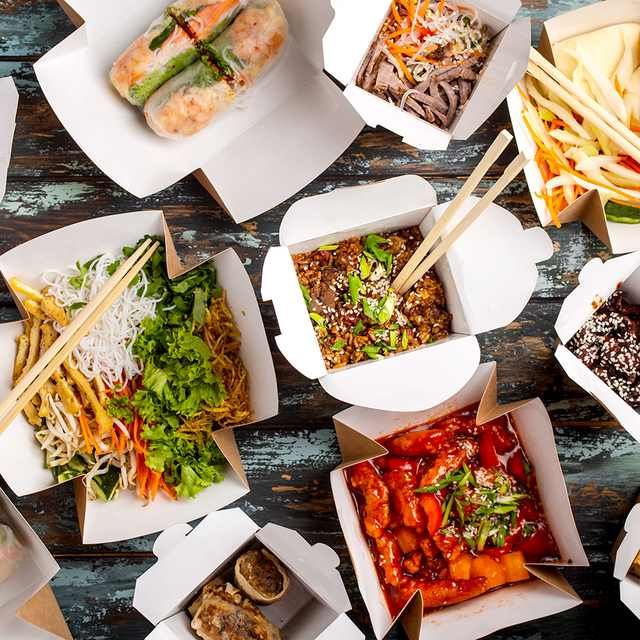
Healthy Asian Food Near Me
Introduction
In the tapestry of global gastronomy, Asian cuisine holds a prominent place in local communities worldwide. Its popularity stems from an exquisite blend of flavors, textures, and cultural richness that tantalizes taste buds and satisfies cravings. However, amidst the vast array of traditional dishes, it’s essential to navigate the landscape with a health-conscious mindset. This blog post aims to serve as your guide to exploring nearby restaurants, markets, and meal delivery services offering nutritious and delicious Asian meals.
Understanding Healthy Asian Ingredients
Asian cuisines are known for their unique staple ingredients that contribute significantly to a balanced diet. Whole grains like brown rice and buckwheat noodles form the backbone of many dishes, providing sustained energy and fiber. Fresh vegetables such as bok choy, kale, and bean sprouts abound, loaded with antioxidants, vitamins, and minerals. Lean proteins like tofu, fish, and chicken are staples too, often prepared through methods like steaming, stir-frying, or boiling which preserve their nutritional integrity over deep-frying.
Locating Healthy Asian Restaurants
When seeking out health-focused eateries, online reviews can be a treasure trove of information. Look for mentions of lighter sauces, oil-free cooking options, and an emphasis on fresh produce. Certain types of Asian cuisine inherently lend themselves to healthier choices; Japanese sushi is renowned for its use of raw fish and minimal seasoning, while Korean bibimbap offers a colorful medley of vegetables atop a bed of brown rice. Vietnamese pho, packed with herbs and lean meats, is another excellent choice. Keep an eye out for local establishments that offer low-sodium, gluten-free, or plant-based adaptations of classic dishes.
Healthy Eating at Asian Markets
Venturing into Asian supermarkets opens up a world of possibilities for healthy home-cooking. The produce section boasts a variety of greens and vegetables rarely found in conventional stores, each teeming with nutrients. When browsing packaged goods, favor items with fewer additives and lower sodium content. Learn to read labels for hidden sugars and MSG. With these tips, you can create wholesome Asian meals at home, such as stir-fries loaded with fresh veggies and lean protein, or hearty soups featuring nutrient-dense ingredients.
Meal Delivery Services and Pre-Packaged Options
Healthy Asian cuisine has also made its way into the realm of meal kits and delivery services. Companies specializing in this area provide pre-portioned ingredients, allowing for controlled servings and minimizing food waste. Many of them source high-quality produce and lean meats, giving you the freedom to customize according to dietary preferences—whether vegan, gluten-free, or low-carb. After trying various services, we recommend some standout options based on taste, convenience, and their commitment to nutritionally sound meals.
Making Your Own Healthy Asian Food
Transforming classic Asian dishes into healthier versions is simpler than you might think. For instance, reduce oil usage by opting for non-stick pans, water sautéing, or using flavorful broths. Incorporate more vegetables into recipes, swap white rice for brown or cauliflower rice, and choose baked or grilled proteins instead of fried. Don’t shy away from experimenting with traditional seasonings and spices to maintain authentic flavors while keeping calories in check.
The Advantages of Healthy Asian Cuisine
Asian cuisine is renowned for its rich flavors, diverse ingredients, and the ability to create delectable meals that are also incredibly healthy. The following paragraphs outline several key advantages of consuming healthy Asian food, emphasizing active voice and transition words.
1. Abundance of Nutrient-Dense Ingredients
Healthy Asian food typically incorporates a variety of fresh vegetables, lean proteins, and whole grains, which serve as powerhouses of essential nutrients. For instance, dishes like stir-fries and soups feature dark leafy greens like bok choy or spinach, loaded with vitamins A and C, iron, and calcium. Transitioning to protein sources, tofu and lean meats like chicken or seafood are staples in many Asian recipes, providing ample amounts of amino acids necessary for muscle repair and growth. Moreover, brown rice, noodles made from buckwheat (soba), and sweet potatoes are common carbohydrate sources that offer complex carbs, fiber, and vital minerals.
2. Low in Processed Foods
Traditional Asian diets often eschew heavily processed foods in favor of natural, minimally processed ingredients. This aspect significantly reduces the intake of preservatives, sodium, and added sugars, which are common culprits behind various health issues such as high blood pressure and diabetes. The emphasis on preparing meals from scratch fosters healthier eating habits and encourages the consumption of whole foods.
3. Herbs and Spices Promote Health
Asian cuisines rely heavily on herbs and spices not just for flavor but also for their medicinal properties. Ginger, turmeric, garlic, and green tea, frequently used in Asian cooking, have potent anti-inflammatory effects that can help prevent chronic diseases. These ingredients also contribute to enhancing digestion and boosting immunity, making healthy Asian food an all-around beneficial choice.
4. Balanced Macronutrient Ratio
Many Asian dishes adhere to the principle of balancing carbohydrates, proteins, and fats. This harmonious blend aids in sustained energy release throughout the day, curbing overeating and promoting a stable metabolism. For example, a typical meal might consist of steamed rice (carbohydrates) alongside a stir-fry containing vegetables and lean protein (proteins and some fats).
5.Portion Control and Mindful Eating
In Asian culinary culture, there’s an emphasis on moderation and shared meals, which inherently encourage portion control. Smaller servings of multiple dishes are enjoyed collectively, allowing one to savor a wide array of tastes and textures without overindulging. This mindful approach to eating helps maintain a healthy weight and promotes a more satisfying dining experience.
Healthy Asian food offers a multitude of benefits, ranging from nutrient-packed ingredients to its reliance on traditional cooking methods that avoid excess processing. By embracing these dietary principles, individuals can enjoy delicious meals while actively nurturing their overall health and well-being.
Conclusion
Emphasizing informed decision-making when choosing healthy Asian food is key to maintaining a balanced diet without sacrificing flavor or variety. By embracing diverse, wholesome Asian fare, you not only enrich your culinary experience but also nourish your body with a wealth of nutrients. As you embark on this journey, we encourage readers to share their experiences with discovering healthy Asian food spots near them and to try out the recommended options. Let this guide inspire you to explore new avenues of healthy eating and celebrate the vibrant world of Asian cuisine in all its nutritious glory.





